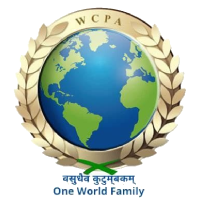Earth Constitution Strategies
The Constitution for the Federation of Earth (CFE) is a blueprint to build an emerging democratic world federation -- a strategy for the possibility that "significant United Nations reform" proves totally inadequate. If the UN cannot be turned into a democratic world federation, then the Earth Federation will fill the void. The strategic advantage for the Federation is that it need not wait for approval from the nation-states, important as they ultimately will be, but the Federation can immediately begin building through individuals and communities who ratify the CFE or otherwise aid the Federation's development.
Unfortunately, many world federalists and UN-reform activists have failed to grasp the vital importance of the CFE in their search for solutions to world crises, and have overly relied on hopes that the UN can be fixed -- "strengthened" or "democratized." Hence there has been little thought for a "back up" plan if it becomes obvious that reform of the UN system is incapable of eliminating weapons of mass destruction, wars, global warming, poverty and human rights abuses. Strategies such as protests, networking, global conferences, and new ad hoc institutions such as the International Criminal Court may be helpful, but so far are inadequate for the scale and scope of such global problems.
The situation did improve somewhat after Dr. Lucile Green of California (a ratifier of the CFE) pressed for a Global Peoples Assembly (GPA) within the UN, but agreed that if the UN refused to give it meaningful decision-making power -- then the GPA should go outside the UN. The potential for the GPA to become the "House of Peoples" alongside the House of Nations and House of Counselors in the CFE's tricameral World Parliament was discussed.
The CFE is the culmination of over 40 years of dedicated work by the World Constitution and Parliament Association (WCPA), which was formed in 1959. WCPA consists of a group of internationalists originally founded by Philip Isely (USA), with help from Terence Amerasinghe (Sri Lanka) and others. Their Call for a World Constitutional Convention was circulated worldwide to individuals and to national governments. Three World Constituent Assemblies later, and with the involvement of hundreds of citizens from over 25 countries, the CFE was adopted in Innsbruck, Austria in 1977, and approved after 59 amendments in Troia, Portugal in 1991. Isely, a leading figure, was a fiery critic of the United Nations. He served on the original drafting commission along with lawyers Amerasinghe, D.M. Spencer (India) and Syed Muhammad Husain. International lawyer Max Habicht (Switzerland) chaired the 1977 meetings when the CFE was first adopted. These visionary efforts did not go unrecognized. There was a huge list of "honorary sponsors" for the World Constituent Assembly and Provisional World Parliament, with a dozen Nobel Prize winners, such as Linus Pauling, George Wald, and Archbishop Desmond Tutu. Personal ratifiers included Dr. Robert Muller, former Assistant Secretary-General of the UN, Dr. Rashmi Mayur (India), and Rev. Toshio Miyake (Japan).
The Earth Federation strategy is far more than an attempt to build a working and growing democratic world federation. For WCPA members, the CFE is the heart and soul of a new vision for our world, where idealism is an expected new standard. The Earth Federation symbolizes a new spirit for all citizens, and especially for the peace, environmental and human rights movement. The Earth Federation's principles include world patriotism as the highest form of patriotism; unity in diversity; good government; openness, not secrecy; and authentic democracy. The Federation would outlaw weapons of mass destruction; abolish wars; protect Mother Earth's environment; operate a world judiciary; defend universal human rights; and reduce poverty. Professor Glen Martin, now Secretary General of WCPA, declares that the Earth Federation invites in all and excludes no one. It recognizes every human being as a citizen, and invites every nation to be a member, with all the rights, privileges, and benefits that apply under the Constitution. It would take nothing from those already rich and oppose no one militarily or economically. It would end exploitation of nation by nation and person by person. It should become clear that the Earth Federation is the only institution that could address the global crises that threaten our extinction on Earth.
A growing, popularized Earth Federation not only provides a model for what is needed for legitimate global governance. It also is an alternative to UN Reform if the UN continues to permit only token involvement, such as the "observer status" recently granted the Inter-Parliamentary Union, even though the IPU represents 130 national parliaments. Should activists just keep doing what they're doing -- networking; reacting to this crisis, then that crisis; protesting this war, then that war; lamenting loudly over poverty and human rights abuses? Isn’t complaining loudly, but with no permanent answers, a "Sisyphean experience"? The Earth Federation/Earth Constitution/World Parliament strategy could change all of that. We'd all like UN reform to succeed. But if that is unrealistic, then it's just common sense to have a brand new replacement strategy waiting in the wings. That's where the Earth Federation/Earth Constitution/World Parliament could change all of that. It should be the parallel strategy to UN Reform and given equal time and attention.

